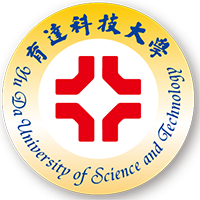History
The Department of Multimedia and Game Development Science was established in 2006. Adhering to the university's four core educational philosophies of "Ethics," "Innovation," "Quality," and "Performance," the department prioritizes creativity and emphasizes the integrated application of theory and practice to cultivate high-quality talent for Taiwan's digital content industry. To align with national policies, industry needs, and future trends, the university established the Department of Multimedia and Game Development Science in the 2006 academic year. The department was approved to be renamed the Department of Multimedia and Game Design (hereinafter referred to as the Department) in the 2015 academic year.
Since the 2008 academic year, the department has been divided into two major concentrations: "Game Development" and "Visual Design," based on the professional skills required by related industries. With the educational goals of "cultivating professional and technical personnel with multimedia and game development capabilities" and "cultivating professional and technical personnel with visual design and digital content development capabilities," the department strengthens the development of professional knowledge and practical technical skills. In the 2018 academic year, the "School of Science and Technology Innovation" was established, and the department was relocated from the College of Leisure and Creativity to the College of Science and Technology Innovation (hereinafter referred to as the College of Science and Technology Innovation) to align with current trends.
The School of Science and Technology is developing its distinctive focus on "innovation and entrepreneurship, cloud technology, and smart marketing," aiming to cultivate professionals with cross-disciplinary application capabilities to meet current industry trends and demands. By balancing diversity and creativity, the school integrates two majors through thematic themes, developing a curriculum focused on "cross-disciplinary multimedia technology integration and practical application, cross-platform digital content development, and mobile services." Furthermore, the school's distinctive programs include "cross-industry collaboration, value-added practice-oriented competitions," "promoting modular professional learning and developing diversified technological development," and "digital interactive integrated applications and creative development design practices." The school aims to cultivate professionals with integrated capabilities to meet current industry trends and demands.

 Orbit
Orbit

